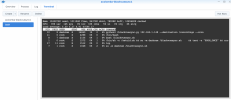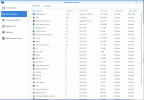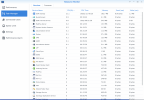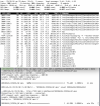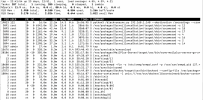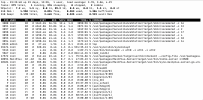I see interruptions too with a UniFi setup. (It's one of the reasons I made blackvuesync: I don't think I saw another downloader that was resilient to failures.)
I have a semi-directional AP on the opposite side of the garage wall. It points inside the house, so it's not an optimal setup for the dashcam obviously. Signal strength is 85% with just about 10 packet retries/min (curiously only for packets to the dashcam.) The UniFi software reports 30-100Mbps speeds with 5min sampling, but effectively I see ~30Mbps download speeds in blackvuesync
I'm recording just the front camera at 100MB/min, so 30Mbps means I download a minute of footage in ~30 seconds, or a 2x speedup. I imagine a front+rear setup would get me close to a 1:1 ratio recording/download.
I just pushed a change to blackvuesync that logs effective download speeds to help evaluate these setups.

